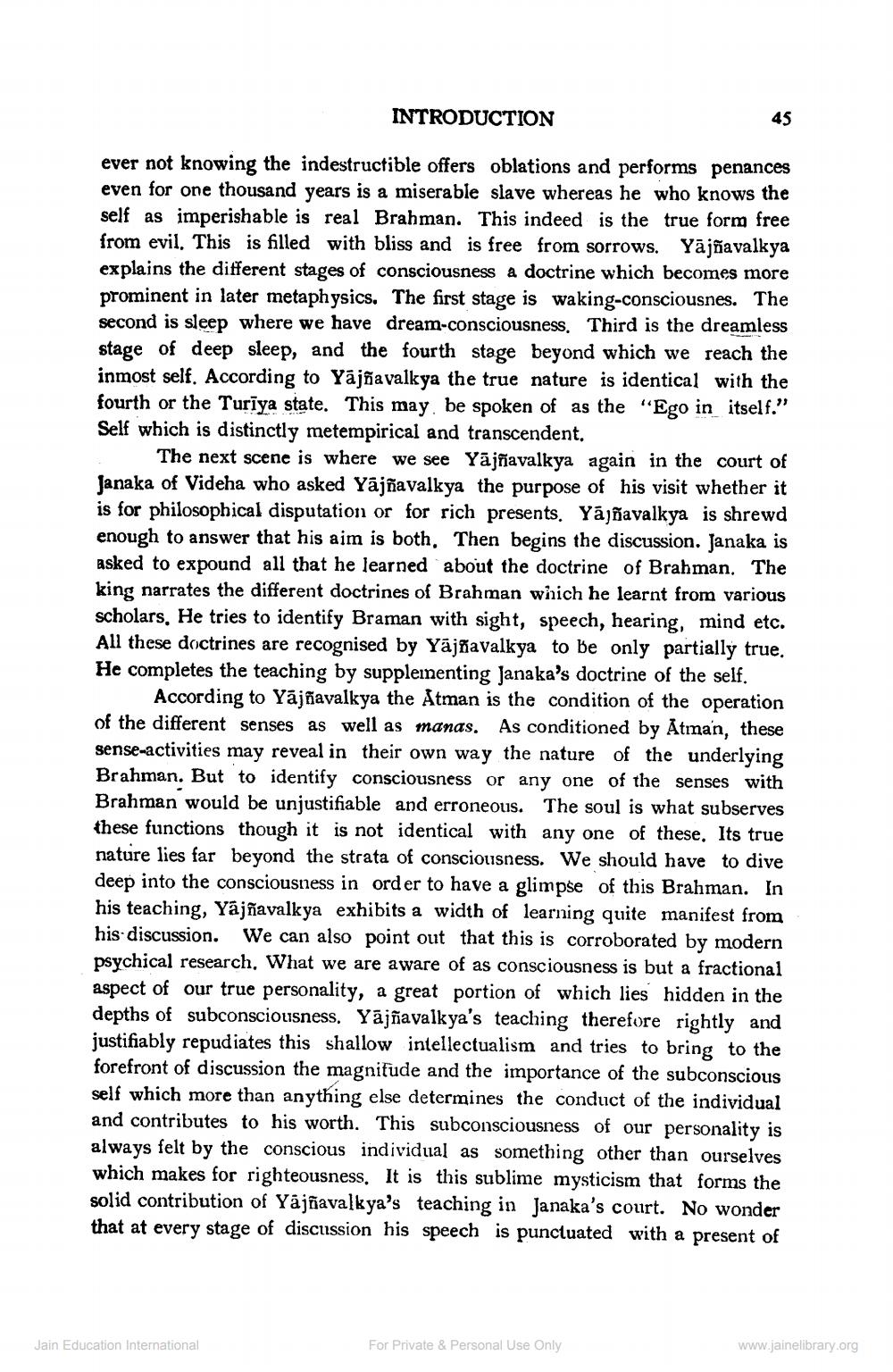________________
INTRODUCTION
Jain Education International
ever not knowing the indestructible offers oblations and performs penances even for one thousand years is a miserable slave whereas he who knows the self as imperishable is real Brahman. This indeed is the true form free from evil. This is filled with bliss and is free from sorrows. Yājñavalkya explains the different stages of consciousness a doctrine which becomes more prominent in later metaphysics. The first stage is waking-consciousnes. The second is sleep where we have dream-consciousness. Third is the dreamless stage of deep sleep, and the fourth stage beyond which we reach the inmost self. According to Yajnavalkya the true nature is identical with the fourth or the Turiya state. This may be spoken of as the "Ego in itself." Self which is distinctly metempirical and transcendent.
The next scene is where we see Yajnavalkya again in the court of Janaka of Videha who asked Yajnavalkya the purpose of his visit whether it is for philosophical disputation or for rich presents. Yajnavalkya is shrewd enough to answer that his aim is both. Then begins the discussion. Janaka is asked to expound all that he learned about the doctrine of Brahman. The king narrates the different doctrines of Brahman which he learnt from various scholars. He tries to identify Braman with sight, speech, hearing, mind etc. All these doctrines are recognised by Yajnavalkya to be only partially true. He completes the teaching by supplementing Janaka's doctrine of the self.
According to Yajnavalkya the Atman is the condition of the operation of the different senses as well as manas. As conditioned by Atman, these sense-activities may reveal in their own way the nature of the underlying Brahman. But to identify consciousness or any one of the senses with Brahman would be unjustifiable and erroneous. The soul is what subserves these functions though it is not identical with any one of these. Its true nature lies far beyond the strata of consciousness. We should have to dive deep into the consciousness in order to have a glimpse of this Brahman. In his teaching, Yajnavalkya exhibits a width of learning quite manifest from his discussion. We can also point out that this is corroborated by modern psychical research. What we are aware of as consciousness is but a fractional aspect of our true personality, a great portion of which lies hidden in the depths of subconsciousness. Yajnavalkya's teaching therefore rightly and justifiably repudiates this shallow intellectualism and tries to bring to the forefront of discussion the magnitude and the importance of the subconscious self which more than anything else determines the conduct of the individual and contributes to his worth. This subconsciousness of our personality is always felt by the conscious individual as something other than ourselves which makes for righteousness. It is this sublime mysticism that forms the solid contribution of Yajnavalkya's teaching in Janaka's court. No wonder that at every stage of discussion his speech is punctuated with a present of
45
For Private & Personal Use Only
www.jainelibrary.org




